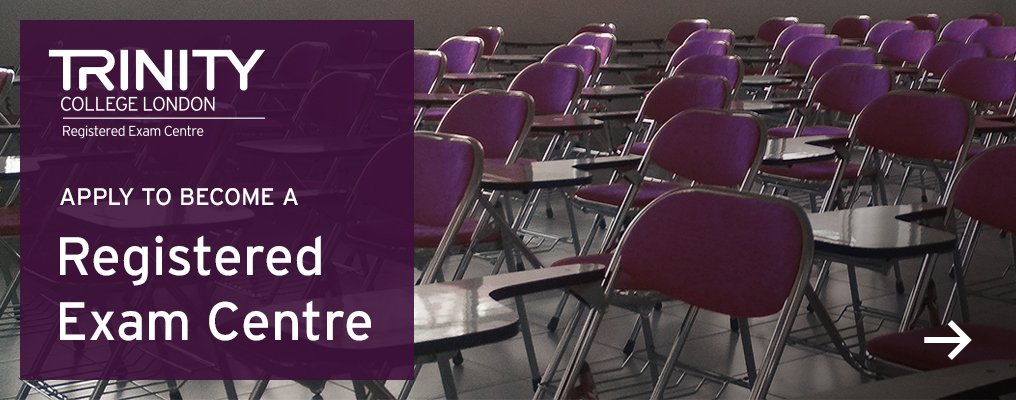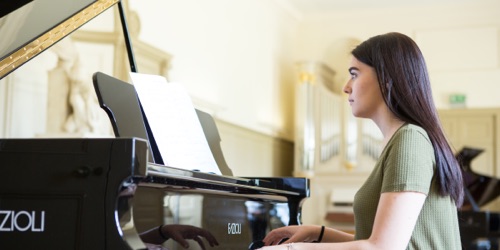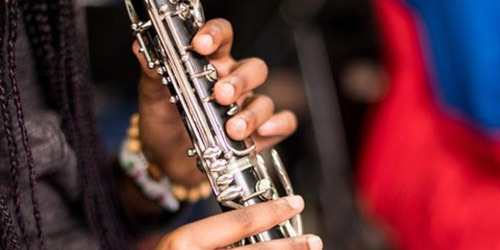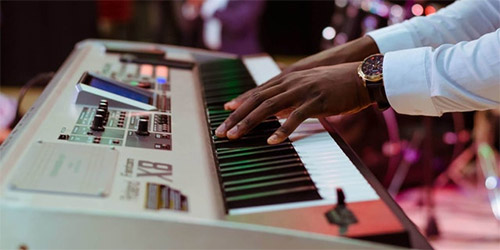Performance is at the heart of Trinity’s graded music assessments as we believe that musicianship is most effectively demonstrated through practical performance.
Our exams can be taken in Piano, Singing, Brass, Electronic Keyboard, Organ, Classical and Acoustic Guitar, Drum Kit & Percussion, Strings, Woodwind and Jazz Woodwind and Theory of Music.
Find out more about our Graded examsDigital Grades and Diplomas
Digital Grades and Diplomas are available for booking. These provide an online platform for the assessment of music and drama grade and diploma exams.
Find out more about Digital Music GradesBecome a Trinity Registered Exam Centre
Did you know that Trinity Registered Exam Centres gain access to teacher support, study materials and teacher development, including leading teacher qualifications?
Discover the benefits of becoming a Trinity Registered Exam Centre (such as access to Music books at business discount prices) and learn how to apply.
Find out moreFor help with any of our Music exams, please visit the Music exam information page.









